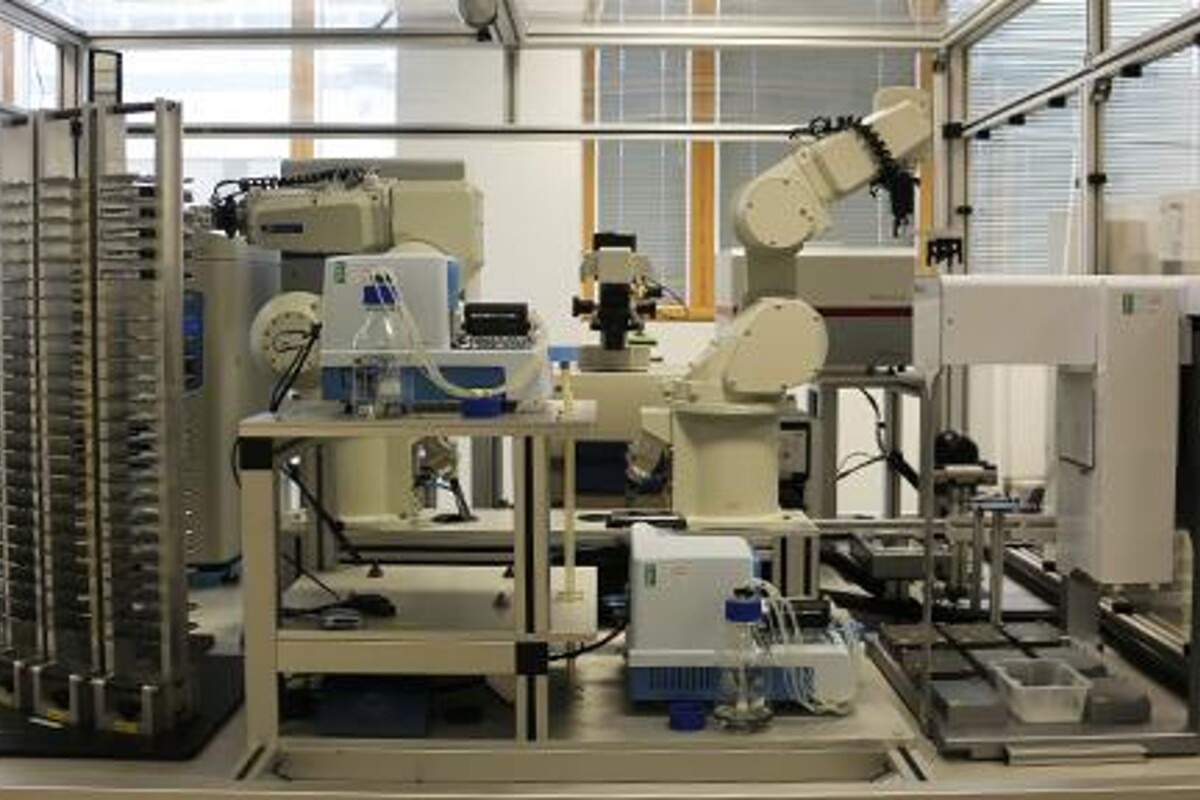Modern pharmaceuticals are a wonder of our age, but they also take years to develop at incredible cost. To shorten development time and increase economy, scientists at the Universities of Cambridge and Manchester have built Eve, an artificially-intelligent "robot scientist" that is not only faster and cheaper than its human counterparts, but has already identified a compound that could be used to fight malaria.
According to the University of Cambridge, pharmaceutical research is stuck in a terrible bottleneck. It can take 10 years and US$1 billion to create a new drug – time during which many people continue to suffer and that money needs to be recouped somehow. It's for this reason that drugs for fighting many diseases like malaria are lacking and "orphan" drugs, which would help only a handful of people aren't aggressively pursued.
"Neglected tropical diseases are a scourge of humanity, infecting hundreds of millions of people, and killing millions of people every year,” says Professor Steve Oliver from the Cambridge Systems Biology Centre and the Department of Biochemistry at the University of Cambridge. “We know what causes these diseases and that we can, in theory, attack the parasites that cause them using small molecule drugs. But the cost and speed of drug discovery and the economic return make them unattractive to the pharmaceutical industry."
One way in which drug testing can be automated is the "brute force" method, which involves testing every compound and every variant until you can find one that is effective. This works, but it is very time consuming and, even with the fastest automated system, it can only work with the simplest of problems if you have a few centuries to spare.
A faster and cheaper alternative is robots with artificial intelligence that are capable of not only carrying out routine drug tests, but also of developing, testing, and amending hypotheses while automatically curating all data and results. That's where Eve comes in.
Eve is based on Adam, a robot scientist developed in 2009 by the Universities of Aberystwyth and Cambridge. It automates early-stage drug testing and design by using a series of tests that lend themselves to machine-screening at low cost at a rate of 10,000 tests a day. Instead of relying simply on brute-force testing of all available compounds, Eve takes a random subset of compounds, testing them a number of times to eliminate false results. Positive results are then analyzed using statistics and machine learning to predict new small molecule structures that are likely to return better results.
"Eve exploits its artificial intelligence to learn from early successes in her screens and select compounds that have a high probability of being active against the chosen drug target," says Professor Oliver. "A smart screening system, based on genetically engineered yeast, is used. This allows Eve to exclude compounds that are toxic to cells and select those that block the action of the parasite protein while leaving any equivalent human protein unscathed. This reduces the costs, uncertainty, and time involved in drug screening, and has the potential to improve the lives of millions of people worldwide."
The research team tested Eve by having it test molecules from parasites that spread malaria, Chagas’ disease and schistosomiasis, and compare them to 1,500 compounds to see if any were effective against them. One interesting result was that a compound, which acts as an anti-cancer drug, inhibits DHFR – a key malaria parasite molecule. The researchers point out that though treatments against the molecule already exist, scientists are always looking for alternatives in case the parasites develop a resistance to conventional treatments.
"Despite extensive efforts, no one has been able to find a new antimalarial that targets DHFR and is able to pass clinical trials," says Professor Ross King, from the Manchester Institute of Biotechnology. "Eve’s discovery could be even more significant than just demonstrating a new approach to drug discovery."
The research team says that Eve currently does not have the capability to synthesize compounds that it can design based on its tests, but this could be added to future versions.
The research results were published in Interface.
The video below shows Eve in action.
Source: University of Cambridge





